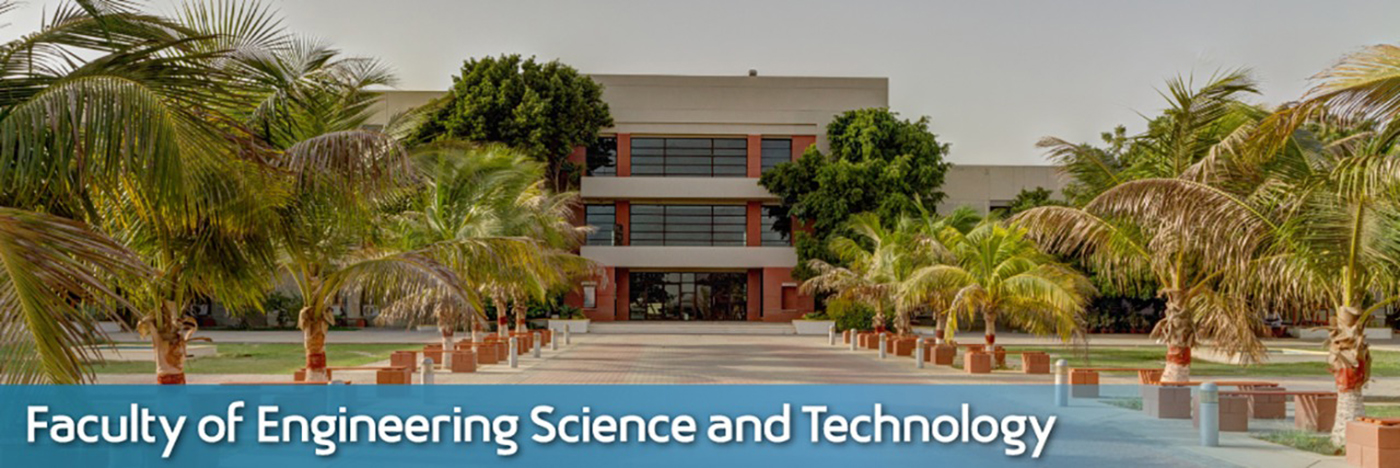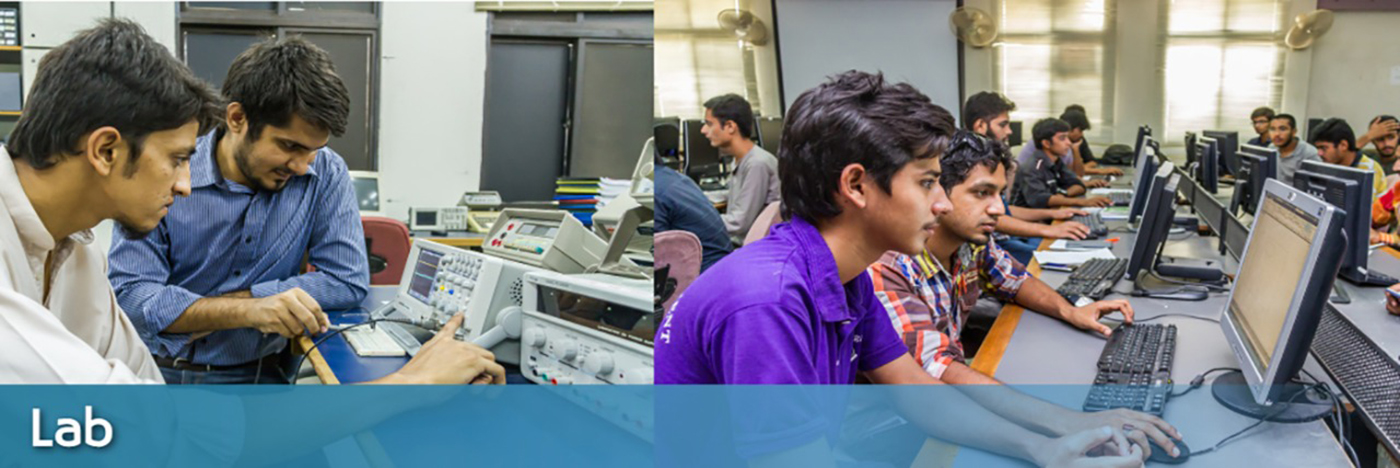


BS Computer Science
To achieve excellence in quality education and research to prepare leaders in computational and allied sciences contributing to industrial & societal development and prosperity.
To provide quality education in science and technology along with strong focus on personality grooming and character building in order to help students become responsible citizens who can make meaningful contributions to the social, scientific, and economic advancement of society by providing innovative solutions for local and global problems.
PEO_1: Engage in the practice of computer science to identify, plan, design and solve significant problems across a broad range of operation areas and communicate these results professionally.
PEO_2: Solve complex problems using sound hypotheses and underpinning mathematical principles of computer science.
PEO_3: Be a responsible professional and demonstrate leaderships kills for taking initiatives by considering the impact on society, and the ethical and social implications of one’s actions towards the successful completion of professional duties.
PEO_4: Adapt to new technologies, and tools, and engage themselves in professional development, life-long learning and advanced research through post-graduate studies, culminating in a positive impact on organizations, community and society at large.
PLO_1 Academic Education: To prepare graduates as computing professionals.
PLO_2 Knowledge for Solving Computing Problems: Apply knowledge of computing fundamentals, knowledge of a computing specialization, and mathematics, science, and domain knowledge appropriate for the computing specialization to the 16 abstraction and conceptualization of computing models from defined problems and requirements.
PLO_3 Problem Analysis: Identify, formulate, research literature, and solve complex computing problems reaching substantiated conclusions using fundamental principles of mathematics, computing sciences, and relevant domain disciplines.
PLO_4 Design/ Development of Solutions: Design and evaluate solutions for complex computing problems, and design and evaluate systems, components, or processes that meet specified needs with appropriate consideration for public health and safety, cultural, societal, and environmental considerations.
PLO_5 Modern Tool Usage: CCreate, select, adapt, and apply appropriate techniques, resources, and modern computing tools to complex computing activities, with an understanding of the limitations.
PLO_6 Individual and Teamwork: Function effectively as an individual and as a member or leader in diverse teams and in multi-disciplinary settings .
PLO_7 Communication: Communicate effectively with the computing community and with society at large about complex computing activities by being able to comprehend and write effective reports, design documentation, make effective presentations, and give and understand clear instructions.
PLO_8 Computing Professionalism and Society: Understand and assess societal, health, safety, legal, and cultural issues within local and global contexts, and the consequential responsibilities relevant to professional computing practice.
PLO_9 Ethics: Understand and commit to professional ethics, responsibilities, and norms of professional computing practice.
PLO_10 Life-long Learning: Recognize the need, and have the ability, to engage in independent learning for continual development as a computing professional.
S.No | Program Learning Outcomes(PLOs) | PEOs | |||
PEO-1 | PEO-2 | PEO-3 | PEO-4 | ||
1 | Academic Education | √ |
|
|
|
2 | Knowledge for solving Computing Problems |
| √ |
|
|
3 | Problem Analysis |
| √ |
|
|
4 | Design/Development of Solutions | √ |
|
|
|
5 | Modern Tool Usage |
|
|
| √ |
6 | Individual and Teamwork |
|
| √ |
|
7 | Communication | √ |
|
|
|
8 | Computing Professionalism and Society |
|
|
| √ |
9 | Ethics |
|
| √ |
|
10 | Life long Learning |
|
|
| √ |
BS (Computer Science) Program spanning over 4 years has been prepared and designed in accordance with the HEC/ NCEAC guidelines.
- At least 50% marks obtained in Intermediate (HSSC) examination with Pre-Engineering, Pre-Medical, relevant DAE, or equivalent qualification with Mathematics certified by IBCC.
- Pre-Medical but students must pass deficiency 02 non-credit courses of Mathematics within one year of their regular undergraduate studies.
Duration of Program | 4 Years (7 years maximum) |
Number of Semesters | 8 |
Average Number of Courses per Semester | 5 or 6 |
Total Credit Hours | 132* |
*Additional / Deficiency Course: Mandatory for Inter Pre-Medical Students.
Additional / Deficiency courses not included while calculating CGPA for intermediate Pre-Medical Students